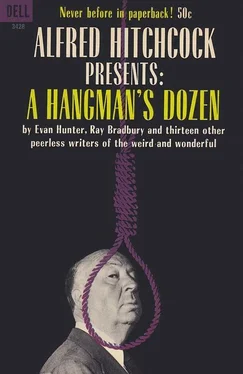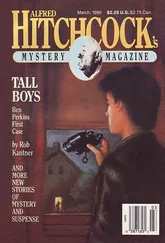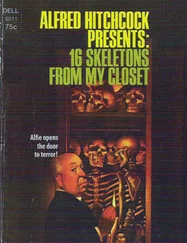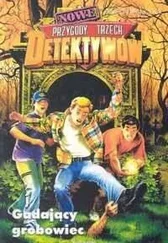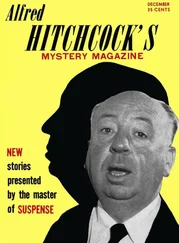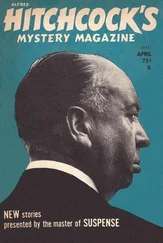I was sitting at the bar drinking an ambrosia highball when Sherry came in. It was not the cocktail lounge of the Café Picardy by any means, but it was a pleasant place, and there was a talented and pretty girl who sat on a little dais and played pretty tunes on a concert harp. Sherry was certainly astonished to see me, and apparently uncertain whether to be happy or otherwise. Anyhow, she sat on a stool beside me.
“What on earth are you doing here?” she said.
“Hello, Sherry,” I said. “It’s odd that you should use that expression.”
“What expression?”
“On earth.”
“Oh.” She stared at me and frowned and tapped on the bar rapidly with the nail of the index finger of her right hand, which was a sign that she was angry. “Well, never mind being evasive with me, for I understand everything dearly now. Sherm, you so and so, you put poison in two of those little bottles, and then you contrived somehow to have them chosen by you and me, and it was nothing but a damn dirty trick to get me permanently away from Dennis. There is simply no limit to your duplicity.”
“You do me an injustice to accuse me of playing a dirty trick like that,” I said. “It’s true that things were not quite as I said, but I certainly didn’t discriminate against anyone. We all had exactly the same chance.”
“Explain yourself, if you don’t mind.”
“The truth is, I put poison in all three of the bottles.”
“In that case, where’s Dennis?”
“Yes, indeed,” I said “Where is he?”
“I haven’t seen him around anywhere.”
“Neither have I. Nor will we. Not for a long time.”
“You mean he reneged? That after agreeing to participate, he didn’t drink his port at all?”
“That’s it.”
She kept on staring at me, but her index finger kept tapping slower and slower until it shortly stopped altogether, and I thought I could see in her eyes certain signs that we might be entering a heavenly era of madness, delirium, and irresistibility.
“Well,” she said, “I can see that I called the wrong man an old so and so.”
“That’s all right,” I said. “Would you care for an ambrosia highball?”
“I think I would,” she said. “I need it.”
The Best-Friend Murder
Donald E. Westlake
Pity the poor detective. He must detect, and having detected, like all true artists, he dare not be satisfied. Catching someone for a murder is not enough; this someone must also be guilty of the crime.
* * *
Detective Abraham Levine of Brooklyn’s Forty-Third Precinct chewed on his pencil and glowered at the report he’d just written. He didn’t like it, he didn’t like it at all. It just didn’t feel right, and the more he thought about it the stronger the feeling became.
Levine was a short and stocky man, baggily-dressed from plain pipe racks. His face was sensitive, topped by salt-and-pepper gray hair chopped short in a military crewcut. At fifty-three, he had twenty-four years of duty on the police force, and was halfway through the heart-attack age range, a fact that had been bothering him for some time now. Every time he was reminded of death, he thought worriedly about the aging heart pumping away inside his chest.
And in his job, the reminders of death came often. Natural death, accidental death, and violent death.
This one was a violent death, and to Levine it felt wrong somewhere. He and his partner, Jack Crawley, had taken the call just after lunch. It was from one of the patrolmen in Prospect Park, a patrolman named Tanner. A man giving his name as Larry Perkins had walked up to Tanner in the park and announced that he had just poisoned his best friend. Tanner went with him, found a dead body in the apartment Perkins had led him to, and called in. Levine and Crawley, having just walked into the station after lunch, were given the call. They turned around and walked back out again.
Crawley drove their car, an unmarked ’56 Chevy, while Levine sat beside him and worried about death. At least this would be one of the neat ones. No knives or bombs or broken beer bottles. Just poison, that was all. The victim would look as though he were sleeping, unless it had been one of those poisons causing muscle spasms before death. But it would still be neater than a knife or a bomb or a broken beer bottle, and the victim wouldn’t look quite so completely dead.
Crawley drove leisurely, without the siren. He was a big man in his forties, somewhat overweight, square-faced and heavy jowled, and he looked meaner than he actually was. The Chevy tooled up Eighth Avenue, the late spring sun shining on its hood. They were headed for an address on Garfield Place, the block between Eighth Avenue and Prospect Park West. They had to circle the block, because Garfield was a one-way street. That particular block on Garfield Place is a double row of chipped brownstones, the street running down between two rows of high stone stoops, the buildings cut and chopped inside into thousands of apartments, crannies and cubbyholes, niches and box-like caves, where the subway riders sleep at night. The subway to Manhattan is six blocks away, up at Grand Army Plaza, across the way from the main library.
At one p.m. on this Wednesday in late May, the sidewalks were deserted, the buildings had the look of long abandoned dwellings. Only the cars parked along the left side of the street indicated present occupancy.
The number they wanted was in the middle of the block, on the right-hand side. There was no parking allowed on that side, so there was room directly in front of the address for Crawley to stop the Chevy. He flipped the sun visor down, with the official business card showing through the windshield, and followed Levine across the sidewalk and down the two steps to the basement door, under the stoop. The door was propped open with a battered garbage can. Levine and Crawley walked inside. It was dim in there, after the bright sunlight, and it took Levine’s eyes a few seconds to get used to the change. Then he made out the figures of two men standing at the other end of the hallway, in front of a closed door. One was the patrolman, Tanner, young, just over six foot, with a square and impersonal face. The other was Larry Perkins.
Levine and Crawley moved down the hallway to the two men waiting for them. In the seven years they had been partners, they had established a division of labor that satisfied them both. Crawley asked the questions, and Levine listened to the answers. Now, Crawley introduced himself to Tanner, who said, “This is Larry Perkins of 294 Fourth Street.”
“Body in there?” asked Crawley, pointing at the closed door.
“Yes, sir,” said Tanner.
“Let’s go inside,” said Crawley. “You keep an eye on the pigeon. See he doesn’t fly away.”
“I’ve got some stuff to go to the library,” said Perkins suddenly. His voice was young and soft.
They stared at him. Crawley said, “It’ll keep.”
Levine looked at Perkins, trying to get to know him. It was a technique he used, most of it unconsciously. First, he tried to fit Perkins into a type or category, some sort of general stereotype. Then he would look for small and individual ways in which Perkins differed from the general type, and he would probably wind up with a surprisingly complete mental picture, which would also be surprisingly accurate.
The general stereotype was easy. Perkins, in his black wool sweater and belt-in-the-back khakis and scuffed brown loafers without socks, was “arty.” What were they calling them this year? They were “hip” last year, but this year they were — “beat.” That was it. For a general stereotype, Larry Perkins was a beatnik. The individual differences would show up soon, in Perkins’ talk and mannerisms and attitudes.
Читать дальше
